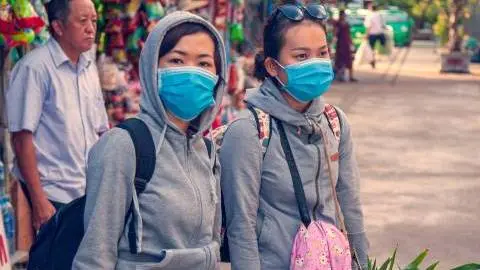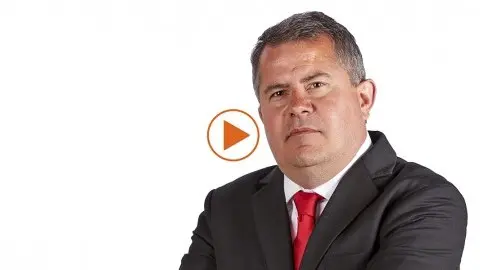Pandenomics: How Covid-19 could change the world
We are nowhere near knowing when the Covid-19 pandemic will end or how bad things will really get. But the world may never be the same again. The pandemic will shake up not only healthcare, but politics and business, culture, society and our well-being. Combining several disciplines, we identify 15 shifts that may confront us over the coming years
1. Big government is back - Covid-19 has forced governments to intervene in the economy and daily life in a way unprecedented in peacetime. More changes will come after emergency lockdowns and support has ended.
2. Peak populism – populist politicians will push their nationalist agendas, pointing tothe dangers of unbridled openness, but some countries may embrace a more focusedinternationalism to tackle global problems.
3. Competence matters - governments and companies that fail to show competence and compassion amid lost lives and livelihoods will rapidly lose trust and support. Therecriminations may fuel ongoing conflict.
4. From monetary to fiscal - a further radical transformation of macro policy will casta long shadow. With fiscal rules cast aside, dealing with a massive build-up of debt willbe an enormous challenge.
5. Inequality matters – it’s not just a matter of fairness, it’s a matter of social stabilityand public health security. Society’s dependence on often low-paid and vulnerablepeople providing vital services is now in the spotlight.
6. ‘Too many to fail’ – pandemic lockdowns will lead to a shake-up in the servicesector, especially in high social contact areas such as leisure, which are dominated bysmall businesses, the low-paid and self-employed.
7. Collateral damage – government intervention in the financial system will continue. Beyond a rethink of how to keep financial markets functioning in future crises, a surge ininsolvencies will leave a painful legacy.
8. Rethinking efficiency – the pandemic exposed the dangers of over-optimisingprocesses, which leave little slack to deal with sudden setbacks. Instead of ‘just in time’, the ethos will shift to bigger ‘just in case’ inventories.
9. Rethink risk management – businesses will shift from linear thinking based onquantifiable risks based on past precedent to a new focus on mastering uncertainty withresilience and agility.
10. Rethinking supply chains – the fact that the pandemic emanated from China, the modern-day ‘workshop of the world’, exposed the vulnerability of global supply chains.
11. Expertise matters, and it needs to be diverse – on top of epidemiology, investments in science, both physical and social, will be needed to help inform difficult political, ethical and economic choices on future challenges.
12. War on disease – the huge human and economic toll of pandemics will pushinvestments in health research and systems to the top of the agenda and add to theurgency of addressing other global threats to sustainability.
13. From physical to digital – sustained curbs on travel and enforced working from home during the pandemic will lead to a steep increase in people interacting digitally, radically shaking up the structure of the economy.
14. Lasting shifts in consumer behaviour and social norms – the mortal threatposed by social interactions has shifted our thinking about how we relate to ourhouseholds, families, neighbours and communities.
15. More benign surveillance of individual health and social interactions – thebenefits of tracking of personal health and our interaction with others may bereconciled with privacy and security by decentralised technology.
Download
Download report
7 April 2020
New Horizons Hub: a green recovery for the post-Covid world? This bundle contains 5 Articles"THINK Outside" is a collection of specially commissioned content from third-party sources, such as economic think-tanks and academic institutions, that ING deems reliable and from non-research departments within ING. ING Bank N.V. ("ING") uses these sources to expand the range of opinions you can find on the THINK website. Some of these sources are not the property of or managed by ING, and therefore ING cannot always guarantee the correctness, completeness, actuality and quality of such sources, nor the availability at any given time of the data and information provided, and ING cannot accept any liability in this respect, insofar as this is permissible pursuant to the applicable laws and regulations.
This publication does not necessarily reflect the ING house view. This publication has been prepared solely for information purposes without regard to any particular user's investment objectives, financial situation, or means. The information in the publication is not an investment recommendation and it is not investment, legal or tax advice or an offer or solicitation to purchase or sell any financial instrument. Reasonable care has been taken to ensure that this publication is not untrue or misleading when published, but ING does not represent that it is accurate or complete. ING does not accept any liability for any direct, indirect or consequential loss arising from any use of this publication. Unless otherwise stated, any views, forecasts, or estimates are solely those of the author(s), as of the date of the publication and are subject to change without notice.
The distribution of this publication may be restricted by law or regulation in different jurisdictions and persons into whose possession this publication comes should inform themselves about, and observe, such restrictions.
Copyright and database rights protection exists in this report and it may not be reproduced, distributed or published by any person for any purpose without the prior express consent of ING. All rights are reserved.
ING Bank N.V. is authorised by the Dutch Central Bank and supervised by the European Central Bank (ECB), the Dutch Central Bank (DNB) and the Dutch Authority for the Financial Markets (AFM). ING Bank N.V. is incorporated in the Netherlands (Trade Register no. 33031431 Amsterdam).
